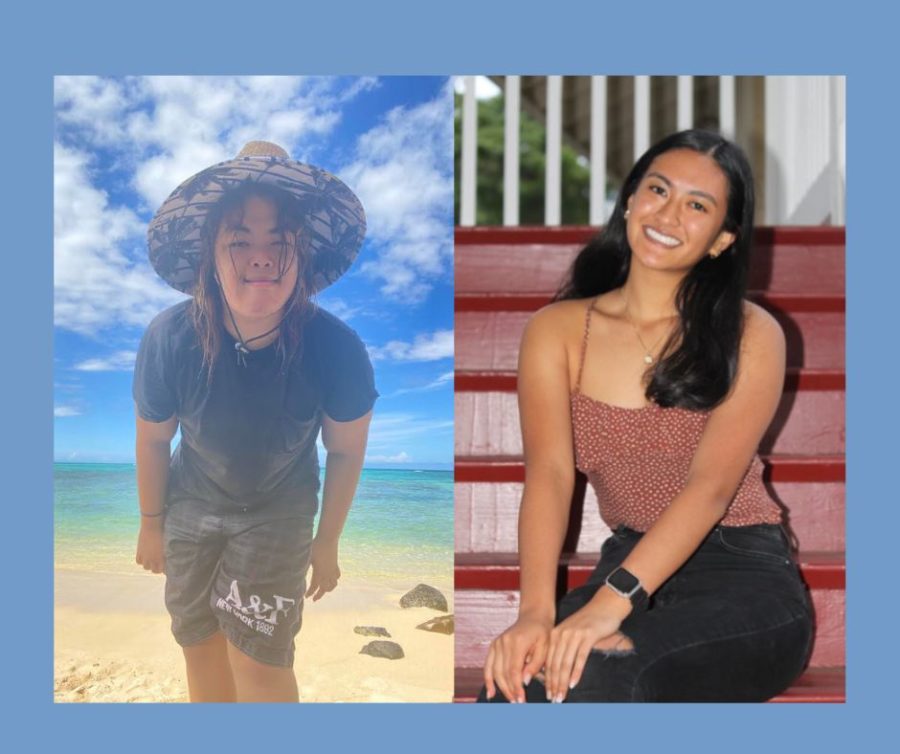1st Generation Chaminade Students Speak About Their Experiences
Tuesday is the National First-Generation College Celebration to honor the signing of the Higher Education Act (HEA) of 1965. The HEA is intended to help level the playing field for minorities in America and those who come from low-income backgrounds. The act led to several grant and loan programs and programs like TRIO: Upward Bound, Talent Search, and Student Support Services to help guide students to postsecondary education.
November 8 is used to celebrate the successes of first-generation students. First-generation students rarely find assistance in preparing them for college. Their parents or siblings have no idea where to start or what to do – college preparation becomes a self-teaching moment for them.
“My parents always talk about wishing they did [obtained postsecondary education],” said Jannabel Bielza, a third-year Biology major (on the integrative and organismal track). “I feel that I am also fulfilling their dreams.”
However, every experience is different; some found it hard, and others easy. Here are two experiences of first-generation students at Chaminade:
John-Paul Pacura is a second-year Computer Science major from Saipan, a small island in the Northern Marianas Islands. He is an early graduate of his high school, but it was unintentional. In January 2021, Pacura’s high school guidance counselor informed him that he had enough credits to graduate with the class of 2021 instead of the class of 2022.
“I didn’t have anyone to give me advice on getting started,” Pacura said. “Even with the hardships of not having someone to look up too, I can be that someone for future generations in my family.”
Pacura’s time to apply for colleges was cut by a whole year. He was unable to take any standardized tests and was basically on his own throughout the application process.
However, he pushed through and applied to 12 schools, such as the University of Guam, Oregon State University, and Chaminade University. Pacura cried when he finished everything because he felt so relieved. The Free Application for Free Student Aid (FAFSA) needs information on his parents, and one of his biggest struggles was finding information about his mother, who wasn’t in contact with him, and helping his father fill out the form.
In the end, he was accepted to all 12 schools. Deciding on which school came down to two factors: location and costs. This narrowed his search to Oregon State University and Chaminade University.
“I went to good, old trusty Google and typed in ‘spin the wheel,’ and I let it decide what school I should go to,” Pacura said.
Pacura has scholarships from Chaminade and Saipan. Though Pacura is a second-year Computer Science major, he has already switched majors seven times. Pacura plans to return home after graduating and working in an office. He hopes to move out of Saipan after two years.
Being at Chaminade has taken Pacura out of his shell, and he is now more involved than in high school. Pacura holds two on-campus jobs as a desk assistant for Hale Lokelani and a teacher’s assistant for the Montessori Laboratory School and is the inventory manager for the Chaminade Student Programming Board (CSPB).
“The beginning is hard [as a first-generation student],” Pacura said. “Don’t be in a shell; be confident.”
Bielza graduated from Honaka‘a High and Intermediate School as her class valedictorian in 2020.
She was heavily involved in high school by playing volleyball, participating in her school’s jazz band, holding leadership positions in various clubs, and being a member of the National Honors Society. Bielza was also a yearbook editor and tutored after school.
Bielza applied to six schools, including the University of Hawai‘i at Mānoa, the University of Portland, Oregon, and Chaminade University. Throughout her application process, she repeatedly saw her high school guidance counselor for help.
“I was always trying to figure things out on my own to help my parents pay for school,” Bielza said. “I felt a lot of pressure because I have a twin, and my parents had to pay for both of us to go to school.”
Bielza was accepted into all six schools. She knew she wanted to be away from home for college but was not ready for the “mainland lifestyle.” Chaminade University consistently stayed in contact with Bielza, and she was allowed to join the first cohort of the Experiential Honors Track Program (now known as the Honors Track Program).
Bielza has remained involved at school by being co-president of the Filipino Club and a member of the Hawaiian club, Biology Club, and Animal Advocacy Club.
Bielza hopes to become a dentist after graduating. She spent a few years wearing braces, and she found her appointments so interesting.
“When my orthodontist took off my braces, she looked so proud with the work she had done,” Bielza said. “It inspired me to be ‘that’ person, one day, to change someone’s smile.”
Students who have parents that have been to college have created connections that could help with their careers. As a first-generation student, Bielza felt that she needed to push herself out there to make those connections herself.
“You have to make your [own] name,” Bielza said.
